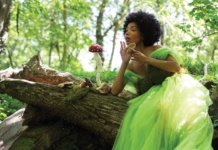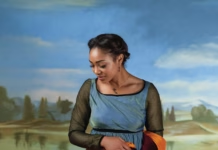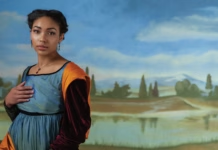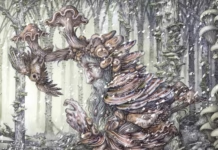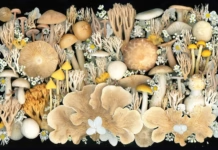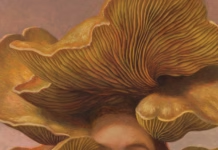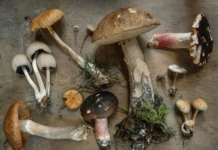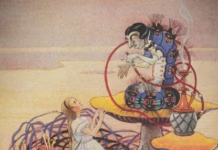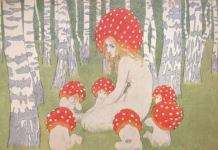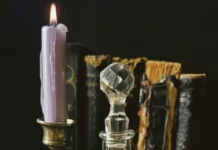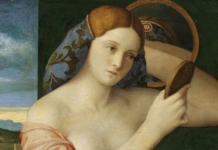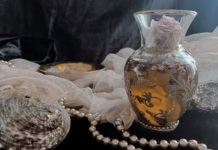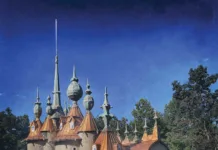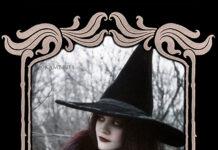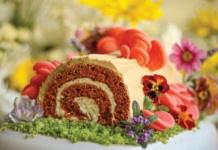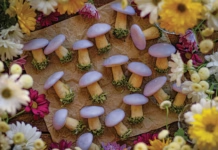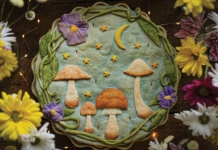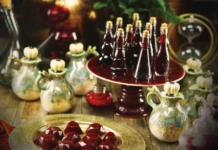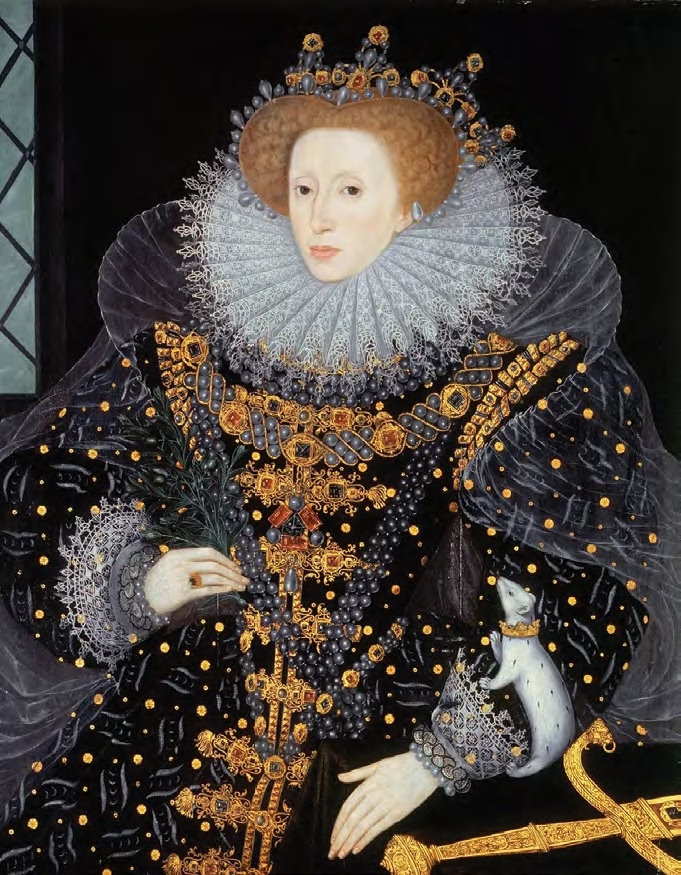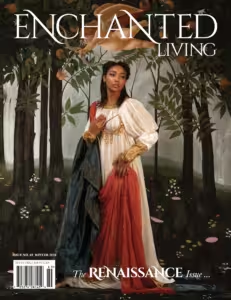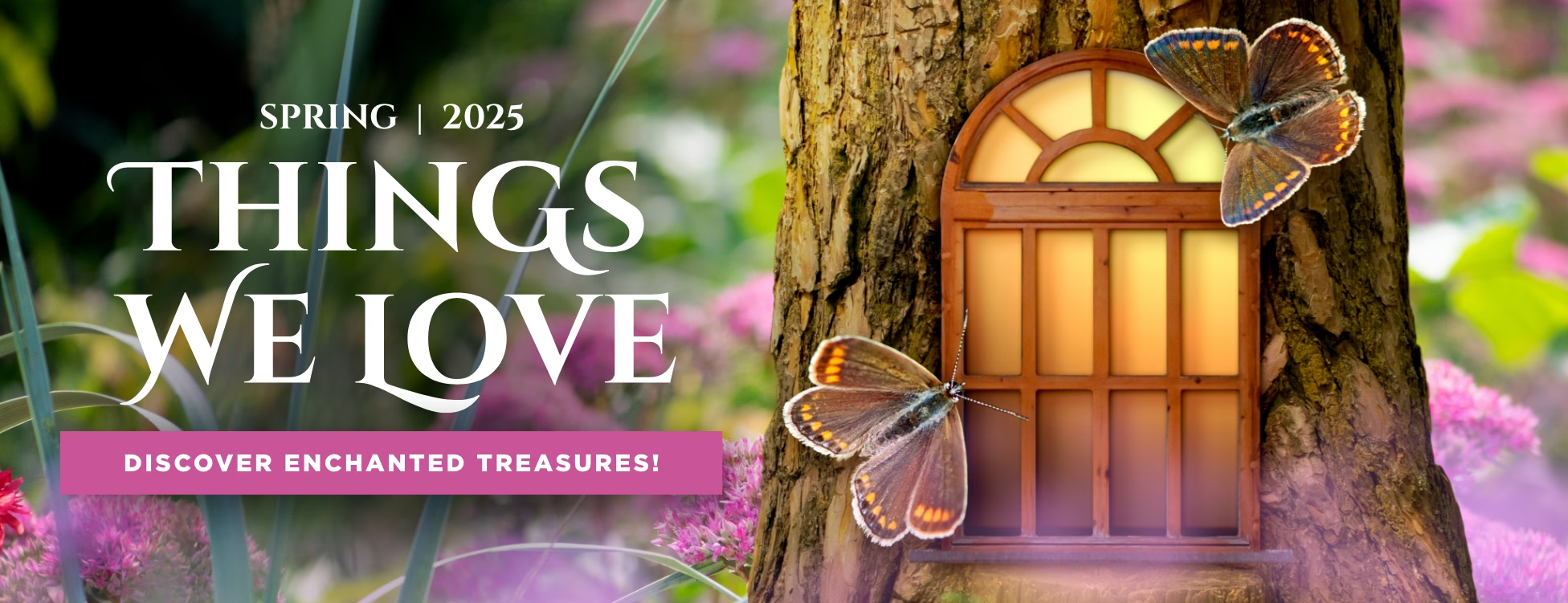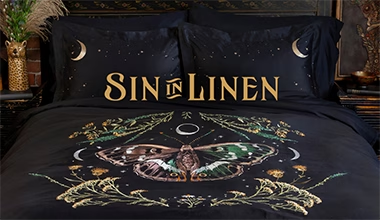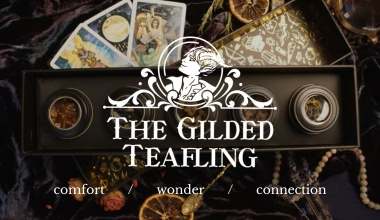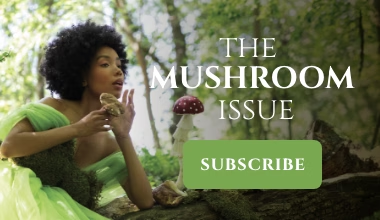It is my purpose to tell you about our English fairies so that you may appropriately honor them and avoid angering the Fair Folk, who are apt to pinch you black and blue if you do not treat them with the respect they deserve. What I write here applies equally to the fairies of Scotland, Wales, and Cornwall, and perhaps those of Ireland, although fairies of such far countries as France and Spain are beyond my knowledge.
First, I must tell you that there are many misconceptions about the Good People, or People of Peace, or whatever else you may call them, for they do not like to be called fairies by us, deeming it rude and overly familiar. The greatest of these misconceptions is that they are small, and this mistake may be found even in the works of our most popular playwrights. For example, Master William Shakespeare has written of the fairy Queen Mab,
She is the fairies’ midwife, and she comes
In shape no bigger than an agate-stone
On the fore-finger of an alderman,
Drawn with a team of little atomies
Athwart men’s noses as they lie asleep;
Her wagon-spokes made of long spiders’ legs,
The cover of the wings of grasshoppers,
The traces of the smallest spider’s web,
The collars of the moonshine’s watery beams,
Her whip of cricket’s bone, the lash of film,
Her wagoner a small grey-coated gnat,
Not so big as a round little worm
Prick’d from the lazy finger of a maid;
Her chariot is an empty hazel-nut
Made by the joiner squirrel or old grub,
Time out o’ mind the fairies’ coachmakers.
Now this is very prettily written, but it is not true of the Fair Folk, and I am surprised that Master Shakespeare has thus far escaped their wrath for portraying them as so diminutive. But perhaps they are simply awaiting their just revenge, and one night, when he is stumbling home from a tavern, deep in his cups, they will come for him and take him into one of their hills, where he may compose entertainments for the Fairy Queen herself!
In truth, the Fair Folk are very much like you or me, only a little smaller and very finely made, smooth silk to our rough wool. Their maidens are as lovely as any ladies in the court of our Queen Eliza, their gentlemen as handsome as Lord Robert Devereux. Although I am not a philosopher, I will tell you systematically what is their appearance so that you might recognize them, and then something about their customs, such as dancing and stealing babies. I will speak also of their origins and their general character, whether good, bad, or indifferent. But most importantly I will tell you how to guard against them, for the Fair Folk are dangerous to meddle with or displease, and it behooves the good housewife or husbandman to keep in their good favor.
Now as to their appearance, I have said already that the fairies are very like us, only smaller and fairer, although those who have seen the Fairy Queen say that she is as tall as an ordinary woman and wondrous fair. Indeed, in the old ballads, True Thomas mistook her for Mary, Queen of Heaven, and those that have met her more recently swear that she is almost as beauteous as our Queen Eliza, and that is beauty indeed. But ordinary fairies are smaller, and their dress is very similar to our own, so that you may be purchasing turnips at a market and not know one of the Fair Folk is standing next to you. Therefore, you must always be mindful of your tongue and not use their names in vain or say anything disreputable about them, lest they seek revenge upon you. The common Fair Folk may be dressed in red, blue, or green, but their gentlefolk prefer green and wear that color almost always.
As for their customs, they prefer dancing to walking, so that you may see a kind of dancing even in their ordinary steps.
Many a husbandman, returning from his fields at the end of the day, has stumbled upon their toadstool rings and been forced to dance with them until dawn or until his strength gave out. Or he may be invited into one of their hills, where the feasting and dancing continue so long that when he returns, his children are as old as he. They love also baking, so that the cakes and other delicacies at their feasts are of the finest, although a man may eat of them all night and still be hungry at dawn. Also they are great hunters, and I myself have heard their hunting horns far off, although I have not seen their gallant company riding through the forest, attired all in green. It is said they plait bells into the manes of their horses so they make a sweet jingling as they ride, and you may hear that sound also upon the wind, in which case it were better that you leave the forest at once or risk being taken by them. They are also, I should have mentioned, reputed to be wonderful singers, with high, sweet voices like choirboys. They play music as well as our own court musicians, on flutes and fiddles and such like, but they perform only dance music, for they do not like solemn sounds, and indeed they are driven off by hymns and church bells.
There is some argument as to their origins, and certainly they were in Britain long before the Romans, for those Latin gentlemen wrote that when they arrived on our island, they found the same nymphs and dryads and hamadryads, and fauns and satyrs, that they had known back home in Italy. Those must have been our fairies, and indeed the Fair Folk may have the same origins in the old pagan times; that is, that they were the spirits of trees and waters, and guardians of the forests, etcetera. However, there are philosophers who say they are fallen angels, and who am I to gainsay such learned men? My own mother told me that the Fair Folk are the souls of the departed, and when her own sister, that is my Aunt Margery, was lured into a fairy hill, she saw her mother having a grand old time, kicking her heels up as though she had not died seven years before. Certainly this is a belief among many of the countryfolk. Whatever the fairies are and wherever they come from, they are more ancient than iron, which they fear and detest, so that one protection from them is putting a knife under your threshold or a horseshoe over your door.
It is, indeed, important to know the words and deeds that will guard against them, for while the Fair Folk are not exactly bad, they are not exactly good either. Rather, I might say that they enjoy meddling with mankind, particularly if mankind meddles with them. So the good husbandman must make certain not to plough fairy ground or take a scythe to their dancing floors, but let their spaces grow wild. The good housewife must set out milk for their drinking and water for their baths. She must keep her household clean, for the fairies do not like laziness, and if she does so, she may find a sixpence in her shoe or pocket, or in a pewter bowl as long as it is well polished. Maidens especially must keep their hair washed and brushed, or the fairies will cut it in the night. But if the Fair Folk do the goodwife or husband a favor, those persons must on no account speak of it, for the fairies hate boasting and their shining coins will crumble into dust as soon as they are mentioned.
Now the greatest danger is to be taken by the fairies, for they prefer human nursemaids for their babies and human babies to their own progeny. If you are taken by the fairies to nurse their children, say nothing, do as you are told, and hope that you are returned to your own household speedily. If you displease the fairy gentry by speaking out of turn, you may find yourself alone in a dark forest, abandoned to the wolves and wild boars. But if they are pleased with you, they may give you second sight, for they can foretell the future as well as Doctor John Dee, who reads the stars for our own blessed Queen. As for babies, until a human baby is christened, you must put iron under its pillow and there are various charms that can be placed around its cradle, which the minister may write for you on a bit of parchment. If your baby is taken and replaced with a changeling, which looks rather like a wizened old man than a healthy child, you must trick it by doing something so surprising that it will betray its origins, such as by cooking soup in an eggshell. Then the changeling will say, “I have lived a hundred years but never seen soup cooked in an eggshell,” and upon that confession, he will disappear and your child will once again laugh in its cradle.
Finally, I must say a word about the Fair Folk and witches, for there is a great deal of misunderstanding about their relations, since the trials of Joan Tyrrye, Bessie Dunlop, and Alison Pearson. Now all of these women were accused to have consorted with fairies and to have learned from them various spells, such as for healing both men and cattle. And it is said that the fairies take women and teach them witchcraft, which is considered a great evil. But for myself, I believe Joan, Bessie, and Alison never did an evil thing in their lives but learned of the fairies how to make medicines out of wayside herbs, how to read the stars and plants, and the virtues of minerals. This is not a wicked knowledge, and if the doctors cannot heal a man, why may he not go to the witches, who may have as much knowledge, and are not so given to bloodletting? Certain it is that witches and fairies are similar in many things, and even Saint Joan, who was burned as a witch by the French, was said to have received her knowledge from the fairies.
I am told there is no better description of the Fair Folk than in Master Edmund Spenser’s poem The Faerie Queene, in which the fairy Gloriana is an allegory of our blessed monarch and her glorious reign. However, this poem is very long and so I have not read it in its entirety. Some years ago, I saw Master Shakespeare’s Midsummer Night’s Dream presented at court, and in that play he has well captured our English fairies, with their cunning tricks and enchanting ways. I myself was quite enchanted with Queen Titania, and if she had invited me to join her train of fairies and go into the forest with Peaseblossom, Cobweb, Moth, Mustard Seed, and the mischievous Puck, I certainly would have, even at the cost of losing my home in the human world and imperiling my immortal soul.
Now I have told you somewhat about the Fair Folk, so that you may guard yourself against them but also so that you may keep in their favor. For if you please them, you may find yourself rewarded with a sixpence, or a precious stone, or second sight. And I myself would give much to see, just once, fairies dancing upon the hillside or a fairy hunt riding through the forest to the jingling of silver bells, led by the Fairy Queen, who is almost as fair as our own Queen Elizabeth.




